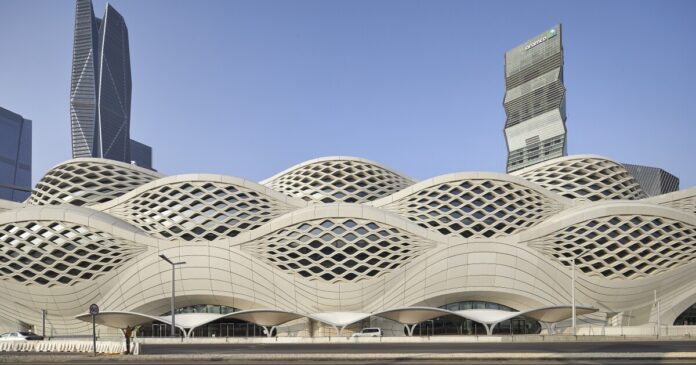Saudi Arabia is embarking on transforming its country into a futuristic tourist paradise with projects like the Line and Mukaab, necessitating a major upgrade to its transportation network. As part of this initiative, authorities have unveiled a massive new driverless metro system touted as the world’s longest.
The Riyadh Metro commenced operations on December 1, with the launch of three of its lines (another line is set to open in January, followed by two more lines soon after). Spanning a total length of 176 km (109 miles), it links vital districts, business hubs, and cultural landmarks across the capital city of Saudi Arabia.
Upon full completion, the train network is projected to accommodate 3.6 million daily passengers, thus significantly reducing road traffic in Riyadh and cutting down CO2 emissions by approximately 12.5 million tons annually.
Featuring a total of 85 metro stations, the most prominent of which is the King Abdullah Financial District (KAFD) Metro Station designed by Zaha Hadid Architects. The station boasts a well-thought-out layout for easy navigation and a visually striking latticed, curving exterior designed to combat the intense summer heat in the Saudi capital.
Hufton+Crow
A total of 69 Alstom Metropolis trains and 47 Innovia Metro trains – all electric – are being utilized for transportation. These trains are categorized into first class, family class, and singles class, equipped with ergonomic seating, LED lighting, air-conditioning, and a passenger information system. They are also automated and have previous experience in driverless transit systems in Budapest, Hungary, Sydney, Australia, and Taipei, Taiwan.
“The trains are driverless,” as explained by Alstom, the provider of rolling stock for the project. “The train movements are safeguarded by a state-of-the-art signaling system controlling train speeds, ensuring smooth and safe operations, including automatic door opening. The fully air-conditioned stations feature platform screen doors to prevent access to the tracks. The trains are also equipped with an advanced passenger information system delivering real-time information via screens and loudspeakers on board the train and at the station platforms.”
In addition to its ambitious Neom projects, Saudi Arabia aims to host the FIFA World Cup soccer tournament in 2034.




